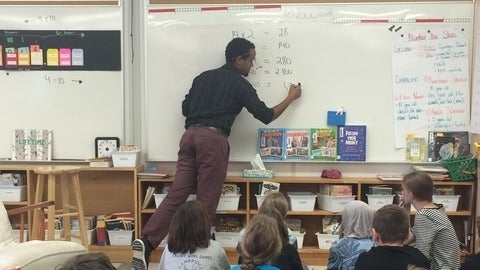Research group wins space solar power award
A cross-disciplinary team from Waterloo were awarded second prize in an international competition organized by SPACE Canada.
The group received recognition for work focusing on the use of lunar resources to build infrastructure for space-based solar power.
